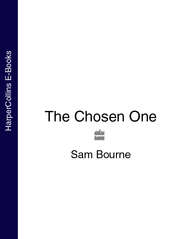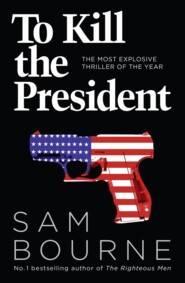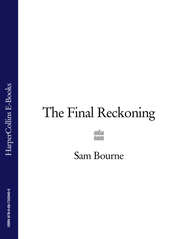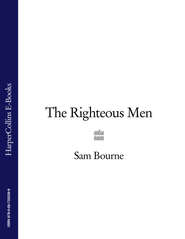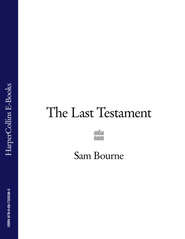По всем вопросам обращайтесь на: info@litportal.ru
(©) 2003-2024.
✖
Pantheon
Настройки чтения
Размер шрифта
Высота строк
Поля
It is dusk, not yet six o’clock. A cloudless day has ensured a severe drop in temperature, so that now he longs for his overcoat. Or perhaps that tremble he feels is a last rush of nerves. Or, as he likes to think of it, stage fright.
He has done a few of these missions and he is becoming rather adroit, if he says so himself. He is quick on his feet, but quick of eye too: if there is something to see, he will see it. That’s what matters most, Jorge is very clear on that. ‘This is not a job you do with your hands or your legs.’ He would point. ‘Your eyes do all the work.’
It is the starting rung in the intelligence corps of the republican army, that’s how he explains it. James’s job is to be a courier of messages, those too secret, sensitive or elaborate to be trusted to radio signals. The enemy is outside Madrid, but also inside: it is known that there is a ‘fifth column’ of Franco sympathizers lurking in the city. That he is a foreigner has its drawbacks: he is more visible, no matter how hard he attempts to dress, walk, smoke like a Spaniard. On the other hand, he has an excuse if a fascist gang pounce. He will say he is a journalist, writing for … it doesn’t matter who.
This journey has been more elaborate than most, but that has not dimmed his confidence. Besides, he has his pal with him, his ‘comrade’ as Harry Knox would put it. They will be one hundred yards apart at all times, with Harry in front – but the important thing is that James will not be alone. James is the message-bearer, Harry the scout who will spot trouble, then either walk around it or walk away, thereby protecting them both.
But on this evening, it is James who has been unsettled by something he has seen. An older man in a creased grey suit walked past him twenty minutes earlier and walked past him again just now, heading in the opposite direction. There is nothing unusual about his manner or his appearance. But Jorge’s words, repeated a dozen times, are too firmly etched on James’s mind: ‘Nothing is a coincidence. If you see the same thing twice, run!’
He thinks of doing that but hesitates, anxious that, if they are being followed, the sight of him sprinting up the street will immediately confirm their pursuers’ suspicions. And what if only he, James, has been spotted? A dash to warn Harry will simply serve to expose his friend as an accomplice.
So he chooses to walk instead, to increase his pace only subtly, to make the gear change from steady to brisk. He has closed the gap to just a few yards when it happens. He feels it before he hears it, the rush of air behind his ear as the bullet races over his shoulder and into Harry’s back. His partner jerks upward, arcing his back, an oddly balletic movement, slow and graceful. As Harry begins to fall, there is a second shot directly into his head, exploding his face into a thousand pieces of flesh and gristle; the glass of his spectacles, lit red with blood, sprays into the air like sparks from a bonfire. A third shot and a fourth and James darts into a side alley, propelled there by instinct alone.
He stands there, panting heavily, his brain juddering over the image he has just seen: the head blown off, the head blown off, the head blown off. Harry there one moment, gone the next. The rain-shower of skin and bone.
He is digesting this when he realizes that his shirt is wet. Some of Harry’s blood must have landed on him. But under his jacket is a red patch, covering the left side of his chest. It takes him a while to realize that the stain is spreading. Oh, he thinks. That’s my blood. I’ve been shot.
Harry’s looking at him, tut-tutting over James’s wound and shaking his head, as if to say, ‘Who’s a silly boy, then?’ Until once again, his brain explodes. And again. And again …
James woke to his own scream. Immediately his hand reached for his left shoulder and, as always, it was wet. Not with blood, but with sweat. That dream, again.
It was light, which only added to his confusion. He was home, in the armchair, the whisky bottle close by. Was it still the afternoon? Had Florence left that morning? The clock on the mantelpiece said seven. But was it morning or evening? Had he dreamed his visit to the Bodleian, his underground encounter with a strange old German Jew and Rosemary Something by the river, shouting at him?
There was a rattling sound outside, muffled and indistinct. He leapt up, to see a shadow of movement shift across the doorway, visible through the stained glass. His heart leapt. Was that Florence, putting her key in the door? Had she come back to him? But there was no smaller, second shadow, no Harry …
He rushed to the door and snatched it open. No one there. He called out. ‘Hello?’ He heard a rustle, but whether that was a person slipping past the trees on this wide, quiet avenue or merely a breeze, he could not tell. He called out once more, stepping forward this time. But no one replied.
The smell of the air, the height of the sun, told him it was a new day. He had slept all night in that chair and they were still gone. It had been twenty-four hours now, twenty-four hours without them. Their absence was not some temporary aberration, a lost afternoon. It was, he felt now, solid and real. The thought of facing another day alone and then another and then another filled him with gloom.
But as he came back inside he caught a glimpse of one of Harry’s favourite toys, left abandoned on the living room floor: a wooden Noah’s Ark, complete with its own pairs of animals. Perhaps it had been too big to take, perhaps Harry had cried as Florence had prised it from his hands, explaining that there was no room for Noah on their long journey. Whatever had happened, the mere sight of it restored James’s determination. He would not be engulfed by despair; he would not give up. No matter what it cost, he would find his wife and child.
He decided to wash, eat and ready himself for the full-scale search. Sleep had given him the clarity to realize that his effort needed to be organized, that it should not begin with the random searching of nearby villages. He girded himself for the task ahead, taking care as he towelled himself dry not to shake his morale by looking too closely at the wreck of his shoulder in the bathroom mirror: collapsed and thinner than the rest of him, as if his chest simply petered out on that side, it was repulsive for him to contemplate. The wound had been treated in a hurry, in the crowded, overworked military hospital in Carabanchel, in the south-west of Madrid, near to where he had fallen. In time the city’s doctors would get used to such operations, as sniper fire became a favoured tactic of Franco’s Fifth Columnists. But on that night they had stitched him up fast, stretching the skin too tight and with little regard to appearances. The result was that the top half of his chest looked like a wall covered with paper from two separate and clashing rolls.
And all the while, as he foamed up the shaving brush and splashed on the hot water, he could not shake the odd feeling he had had since the moment he awoke, one akin to the sensation of being watched. The only reason for it was that faraway rattling sound the instant he had been pulled from sleep, that fleeting glimpse through the glass of the front door – and yet the feeling lingered, like a shiver.
His plan was to see Bernard Grey in college. He would ask him to deploy all his contacts in the Health Ministry running the national evacuation effort, so that they could rifle through their voluminous card index and discover which generous soul had taken in Florence and Harry Zennor. It could not be that difficult, not for a man like Grey, for whom Whitehall might as well have been just another Oxford college.
James parked his bike and guiltily received the greeting of the aged porter in the lodge, a nod he always translated as, ‘What the hell are you doing here, a man your age? Why aren’t you in the war like everyone else?’
To his surprise, the quad was covered with people, around a hundred and fifty men at least, standing in neat lines. The shock was that Oxford had no more strictly imposed rule than the prohibition on walking on the grass. You could steal another man’s essay and pass it off as your own; you could, in the immortal phrase, bugger the Bursar. But you could not, under any circumstances, tread on the trim green of the college lawn. Yet here that hallowed turf had been transformed into a parade ground and there, standing at the head of it, was none other than Grey himself.
He had heard about this but scarcely believed it could be true: that the Oxford South Company of the newly-created Local Defence Volunteers, made up chiefly of Royal Mail employees, had been put under Grey’s command. But here they were, row after row of middle-aged postmen taking orders issued not by a bullying sergeant major but by a white-haired philosopher, one whose voice was known to millions through his regular talks on the BBC Home Service. Heaven preserve them all if, come the invasion, these men represented the first line of defence.
Invasion. The word triggered a memory of yesterday’s ill-tempered exchange with Rosemary. She had been talking about invasion just before he climbed back on his bicycle and returned home, once he had switched off and stopped listening properly to what she was saying. Something about the countries that had fallen in just the last few weeks – France, Holland and Belgium in just a single day last month. Saying that Florence was convinced Britain would be next. Mr Churchill was doing a manful job of stiffening the nation’s resolve, but that was how most people felt: that there was a very good chance that, before long, there would be German boats landing on England’s beaches and German troops walking on England’s streets. Was that why she had not gone to her parents’ house, because she feared Hitler’s men might come across the North Sea and march right into Norfolk? He began to wish he had listened to what the damned Rosemary woman had been saying.
James turned on his heel, avoiding the embarrassment of explaining why he was not among those on parade, and walked back to the porter’s lodge, this time going inside.
Another raised eyebrow semi-smile to the man on duty and straight to the pigeon-holes. Much less for him these days, now that term had finished. There was a letter inviting him to a lecture on birth control by Marie Stopes: Population Science and the Path to Radiant Motherhood. No, thank you. He wouldn’t go within a hundred yards of that woman, not since hearing that she had attended some conference in Berlin a couple of years after Hitler had become Chancellor. Completely unacceptable to lend aid and succour to the Nazis like that. The only exception: if you were going in order to poke a finger in the Germans’ eye, as Florence had done. But there were not many like Florence, not many at all.
Вы ознакомились с фрагментом книги.
Приобретайте полный текст книги у нашего партнера:
Приобретайте полный текст книги у нашего партнера:






